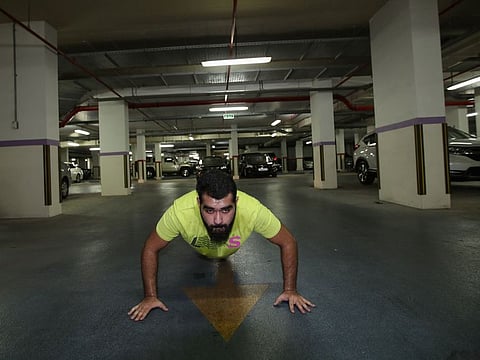COVID-19: Bahrain issues health measures to outdoor training activities
The general rules and guidelines that apply only to registered professional athletes

Dubai: The Bahraini Ministry of Health has announced a set of health measures to be observed by facilities providing outdoor training activities to mitigate the spread of COVID-19.
The measures include several general rules and guidelines that apply only to registered professional athletes. The club or federation must prepare a timetable for pre-booked training sessions and no walk-in will be allowed.
Reservations should be booked with a time slot in between to allow for cleaning and disinfection of shared equipments.
Before training, all athletes, administrators and coaches must fill out a form provided by the club or federation, which addresses the following questions for the previous -14 day period.
If the staff or athlete answers yes to any of these questions, the facility must deny them entry to the premises.
As per the new measures, an infrared thermometer should be used to check the temperature of staff and athletes each day before using the facilities. Any staff member or athlete with a temperature of 37.5°C or higher must immediately leave the premise and call 444.
All athletes and staff are required to download the Be Aware app. Those who do not download the app will be denied entry to the facility. At least 70 per cent alcohol-based hand sanitizers must be provided at the entrance and at several points in the facility.
Facilities must also mark their floors to ensure that social distancing is maintained at all times.
In addition, they must establish a one-way traffic flow. All staff and athletes must wear a facemask when inside the facility, and are permitted to remove it when they are in open air. Those not abiding by this requirement will be asked to leave the premise.
Training sessions must not exceed five participants, including the trainer, and must abide by social distancing rules at all times and athletes are prohibited from engaging in activities that require touching or using shared equipment/machines that are not or cannot be disinfected between uses.
Athletes must bring their personal water-filled bottle, towels and other non-sharable equipment and they must sanitize their equipment before and after use.
They can also use the facilities’ weights, barbells and other heavy equipment, as long as they are disinfected and left to air dry at least 15 minutes before the session. This equipment cannot be shared during the session.
Under the new measures, trainers must limit their contact with athletes. Hands-on adjustments are prohibited during group classes; verbal cues are encouraged to ensure correct posture.
Contact sports or training that involves participants directly touching, coming into close contact (less than 2m apart) or sharing equipment (i.e. football, basketball, wrestling, boxing, mixed martial arts, etc.) are prohibited.
Meanwhile, common areas such as showers, saunas, steam rooms and changing rooms must be closed (in exception to restrooms), until further notice.
The training facilities should also increase the number of trash receptacles and frequency of trash collection and encourage the use of electronic payments.
The competent government entity will conduct regular and random inspections to ensure compliance and any facility which fails to meet these regulations must remain closed.
Employees
As for the employees of these facilities who suffer from symptoms associated with COVID-19, they must not be allowed to work.
The employees should also regularly wash their hands with soap and water for at least 20 seconds and immediately if their hands become visibly soiled.
Additionally, facilities should emphasize to their staff that face coverings and other PPEs are not a substitute for physical distancing and adequate hand hygiene. Where feasible, facilities should stagger staff shifts to ensure that only essential staff are on each shift.
Disinfecting
The training facilities must allow at least 20 minutes between reservations to thoroughly clean and disinfect all communal equipment, including seats, before they are reused. The use of disinfecting wipes to wipe more than one surfaces is not allowed where one wipe can only be for one item or area and should be discarded after each use or when visibly soiled.
As per the new measures, restrooms are to be thoroughly cleaned after each use. Facilities must ensure adequate sanitary supplies (e.g., soap, toilet paper, at least 70% alcohol-based hand sanitizers) throughout the day.
Sign up for the Daily Briefing
Get the latest news and updates straight to your inbox



